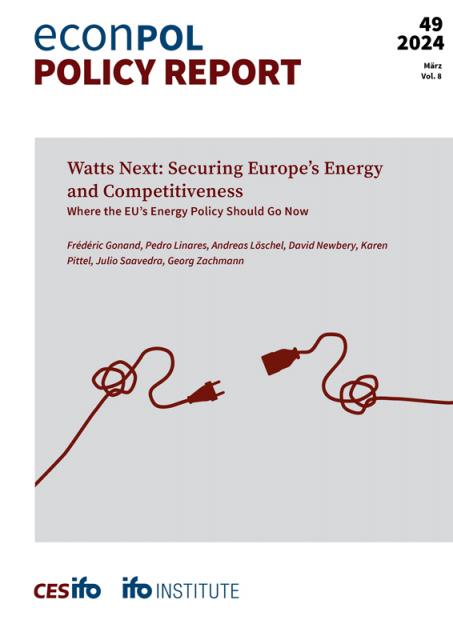Watts Next: Securing Europe’s Energy and Competitiveness
Where the EU’s Energy Policy Should Go Now
Russia’s invasion of Ukraine was a wake-up call for Europe regarding its unhealthy levels of dependence on the energy and metals fronts, and the associated threats this posed to its competitiveness. Meanwhile, the need to decarbonize the economy has become ever more pressing. Soon after the invasion, a raft of measures were adopted, some useful, some less so. This Policy Report examines the lessons learned and, most importantly, looks ahead. EU policy reactions focused primarily on reducing the impact on the economy, balancing energy supply and demand, and diversifying its energy sources. Less attention was paid to reducing energy demand, cutting red tape and improving monitoring tools to assess policy effectiveness. What is now needed is further integration of European electricity markets and gas networks, a fundamental redesign of power grids to make them suitable for renewable electricity sources, timely planning for the decommissioning or repurposing of gas grids, beefing up the capacity to anticipate crises through the creation of a foresight office, and improving communication to facilitate understanding and acceptance of policy measures. Equally, better policy coordination is needed to instil a more pan-European approach instead of today’s more nationalist patchwork, as well as to weed out harmful incentives and to introduce Europe-wide standardized products and trading platforms for long-term markets. Finally, a stronger push for a more circular economy could help not only on the environmental or climate fronts, but also to ease dependence on limited sources of metals critical to the green transition.
Frédéric Gonand, Pedro Linares, Andreas Löschel, David Newbery, Karen Pittel, Julio Saavedra, and Georg Zachmann: “Watts Next: Securing Europe’s Energy and Competitiveness. Where the EU’s Energy Policy Should Go Now,” EconPol Policy Report 49, March 2024.
